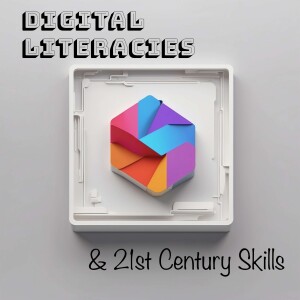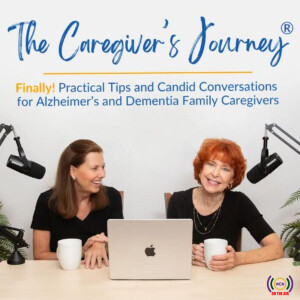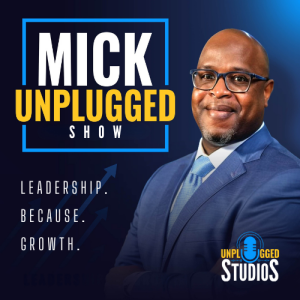

Digital Literacies and 21st Century Skills
https://feeds.transistor.fm/digital-literaciesEpisode List

Exploring TikTok as a Virtual Community (Alyssa, Giovanna, and Kahmari)
In this episode, Alyssa, Kahmari, and Giovanna explore the intricacies of virtual communities on TikTok. They discuss various scholarly articles and personal insights into how virtual communities function as communities of practice, the impact of algorithms, and the role of influencers. Key points include the positives and negatives of TikTok's algorithm, the spread of misinformation, and the sense of community built around shared interests and influencers. They conclude that TikTok, despite its challenges, remains a significant platform for community building and learning.Click here to view the episode transcript. ReferencesIto, M., Martin, C., Salen Tekinbaş, K., Odgers, C., Soep, E., Reich, J., Livingstone, S., & Ito, M. (2020). Connected learning: How the academic and social lives of teens intersect. The MIT Press.Malik, Z., & Haidar, S. (2023). Online community development through social interaction—K-pop Stan Twitter as a community of practice. Interactive Learning Environments, 31(2), 733–751. https://www.tandfonline.com/doi/full/10.1080/10494820.2020.1805773Patel, N. (Host). (2023, October 24). Harvard professor Lawrence Lessig on why AI and social media are causing a free speech crisis for the internet [Audio podcast episode]. In Decoder. The Verge. https://www.theverge.com/23929233/lawrence-lessig-free-speech-first-amendment-ai-content-moderation-decoder-interview

The Social Spiral (Isabella, Kayla, and Mohammad)
Social media is a huge part of our everyday lives. From creating connections, building up careers, and just pure entertainment. However, as social media has its pros there are also its cons which go much deeper than its typical technological capabilities. Isabella, Kayla, and Mohammad go in depth on the major effects social media has on one’s mental health ranging from children, teens and adults.Click here to view the episode transcript. ReferencesEyal, N. (2019). Indistractable: How to control your attention and choose your life. BenBella Books.Lorenz, T. (Host). (n.d.). Is social media destroying kids’ mental health? [Audio podcast episode]. In Taylor Lorenz Podcast.Orlowski, J. (Director). (2020). The social dilemma [Film]. Netflix.Parrish, S. (Host). (n.d.). Nir Eyal: Mastering your attention in a world of distraction [Audio podcast episode]. In The Knowledge Project Podcast. Farnam Street.Pew Research Center. (2024, December 12). Teens, social media and technology: 2024. https://www.pewresearch.org/internet/2024/12/12/teens-social-media-and-technology-2024/World Health Organization. (2022). Mental health of adolescents. https://www.who.int/news-room/fact-sheets/detail/adolescent-mental-health

Discerning Truth in the AI Era (Michelle and Ryan)
In this episode, Ryan and Michelle dive into the critical topic of disinformation, explaining its distinction from misinformation. They explore the historical context of disinformation, its modern amplification through technology like generative AI and DeepFakes, and the real-world impacts these technologies have already had. The discussion highlights the complexities of identifying and combating disinformation, the role of media literacy, and the importance of structural changes and educational reform. The episode underscores the necessity for vigilance, critical thinking, and informed consumption of information in the digital age.Click here to view the episode transcript. ReferencesAlba, D. (2023, May 22). Fake image of Pentagon explosion goes viral, briefly spooks markets. The New York Times. https://www.nytimes.com/2023/05/22/technology/pentagon-explosion-ai-image.htmlBulger, M., & Davison, P. (2018). The promises, challenges, and futures of media literacy. Journal of Media Literacy Education, 10(1), 1-21. https://digitalcommons.uri.edu/jmle/vol10/iss1/1/Graham, T. (2023). The incredible creativity of deepfakes — and the worrying future of AI [Video]. TED Conferences. https://www.ted.com/talks/tom_graham_the_incredible_creativity_of_deepfakes_and_the_worrying_future_of_aiJohnson, E., & Darnovsky, M. (2020). The disinformation dilemma [Audio podcast episode]. In Brave New Planet (Episode 2). Pushkin Industries. https://bravenewplanet.fm/episodes/the-disinformation-dilemmaMarcelo, P. (2023, May 23). AI-generated image of Pentagon explosion triggers brief stock market dip. Associated Press. https://apnews.com/article/pentagon-explosion-misinformation-stock-market-aiSeitz-Wald, A., & Memoli, M. (2024, January 22). Fake Joe Biden robocall tells New Hampshire Democrats not to vote Tuesday. NBC News. https://www.nbcnews.com/politics/2024-election/fake-joe-biden-robocall-tells-new-hampshire-democrats-not-voteSpies, S. (2020). Producers of disinformation. MediaWell. https://mediawell.ssrc.org/research-reviews/producers-of-disinformation/

Misinformation: Are You Sure That's What They Meant? (Cassidy, Evelyn, and Isaak)
Hop into the echo chamber of misinformation-information with Cassidy, Evelyn, and Isaak to learn about some common examples of bias controlling our interpretations of events. Whether in media, the news, or just everyday occurrences, your personal world view can shape how you understand something that seemingly has a definite meaning. In this episode, Cassidy, Evelyn, and Isaak discuss echo chambers created when discussing television and social media events, talking about how separate groups of people watch in a way that confirm their own beliefs. The conversation later brings in the fact that they consume political events very similarly to the aforementioned entertainment examples, leading to more damaging examples of misinformation. Be sure to tune in to see if your bias changes how you interpret their conversation!Click here to view the episode transcript. References Harford, T. (2021). Remember that misinformation can be beautiful, too. In The Data Detective : Ten Easy Rules to Make Sense of Statistics (pp. 187–205). Penguin Publishing Group.Spies, S. (2019, October 22). Contexts of Misinformation. Mediawell. https://mediawell.ssrc.org/research-reviews/contexts-of-misinformation/Spies, S. (2020, July 30). How Misinformation Spreads. Mediawell. https://mediawell.ssrc.org/research-reviews/how-misinformation-spreads/Mitchell et al (2018, June 18). Can Americans Tell Factual From Opinion Statements in the News? Pew Research Center’s Journalism Project. https://www.pewresearch.org/journalism/2018/06/18/distinguishing-between-factual-and-opinion-statements-in-the-news/ (external source)

Exploring the World of Content Reuse (Bevin, Givana, and Luke)
In this episode, Bevin, Givana, and Luke discuss the concept of remixes in pop culture and media, inspired by Kirby Ferguson's YouTube video 'Everything is a Remix.' They explore how social media platforms like TikTok, Instagram, and YouTube borrow features from each other, and how this concept extends to music, art, and television. They also delve into the implications of remixing for originality and creativity, touching on the legal and ethical aspects. The conversation includes discussions on AI's role in creative processes and the potential future of remix culture.Click here to view the episode transcript.
Create Your Podcast In Minutes
- Full-featured podcast site
- Unlimited storage and bandwidth
- Comprehensive podcast stats
- Distribute to Apple Podcasts, Spotify, and more
- Make money with your podcast












